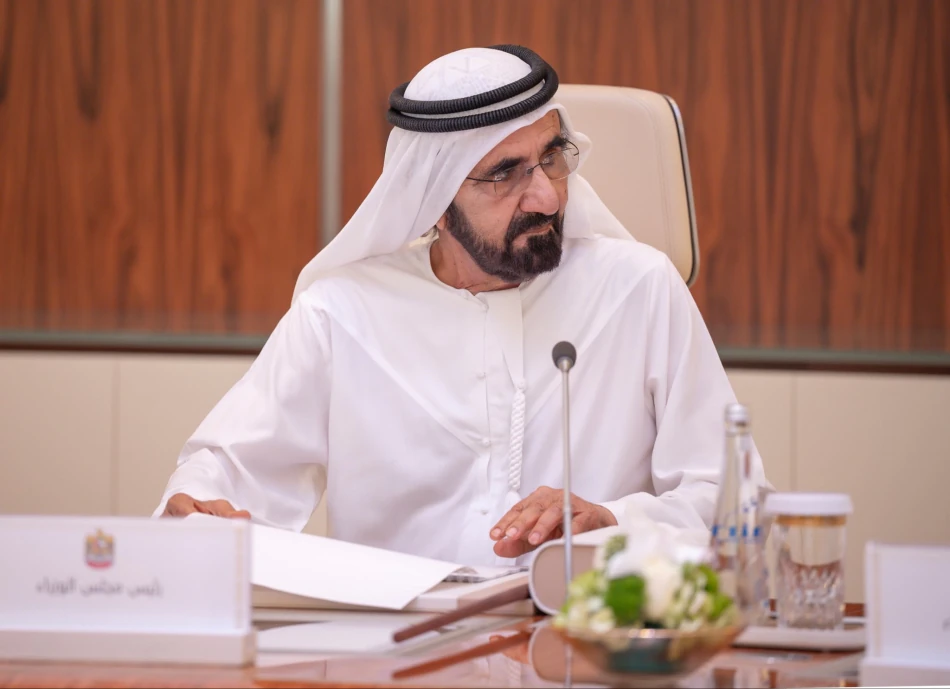
UAE's Global Investment Prowess: Mohammed Bin Rashid Highlights Nation's Top 20 Economy Status
The UAE has approved its largest federal budget in history for 2026, with revenues and expenditures of 92.4 billion dirhams ($25.2 billion). The balanced budget reflects the country's growing economic strength as it becomes a major source of foreign direct investment globally, ranking first in the Arab world and among the top 20 economies worldwide for outbound investment.
Sheikh Mohammed bin Rashid Al Maktoum, UAE Vice President and Prime Minister, chaired the cabinet meeting at Qasr Al Watan in Abu Dhabi where the budget was approved. The 2026 allocation marks a significant milestone for the federation, which was established in 1971.
The cabinet also established a federal financial center support program that will receive annual budget allocations to ensure the financial sustainability of federal institutions. This move strengthens the federal framework and demonstrates the government's commitment to balanced development across all emirates.
The UAE's investment portfolio shows impressive growth. The country's cumulative foreign investment stock reached 1.05 trillion dirhams, growing 9% from the previous year. This positions the UAE as a significant player in global capital flows, competing with much larger economies in terms of investment influence.
Trade performance has been equally strong. UAE exports jumped from approximately 470 billion dirhams in 2019 to 950 billion dirhams in 2024, representing 103% growth over five years. This doubling of export value reflects the country's successful economic diversification efforts and growing manufacturing base.
The cabinet approved 35 international agreements and memorandums covering economic cooperation and trade. These deals expand the UAE's global economic partnerships and create new opportunities for businesses and investors.
For investors and businesses, these numbers signal continued economic stability and growth potential in the UAE market. The balanced budget approach, combined with aggressive outbound investment and export growth, suggests the country is building sustainable economic foundations rather than relying solely on oil revenues.
The budget approval comes as Gulf states face pressure to diversify their economies and reduce dependence on hydrocarbon exports. The UAE's approach of maintaining fiscal discipline while expanding international investment and trade relationships offers a model for other resource-rich nations navigating energy transitions.
Most Viewed News

 Sara Khaled
Sara Khaled






